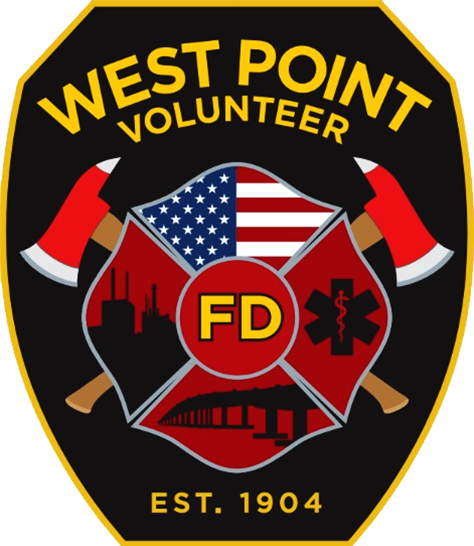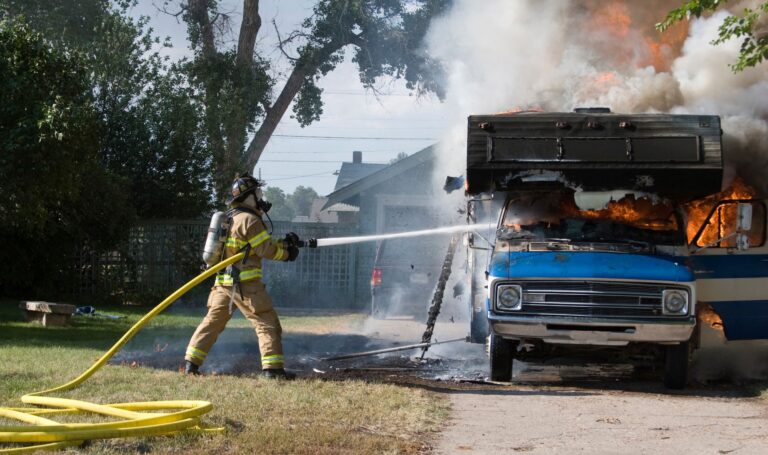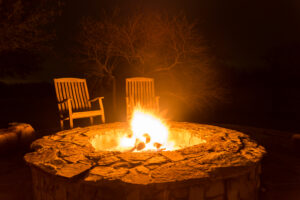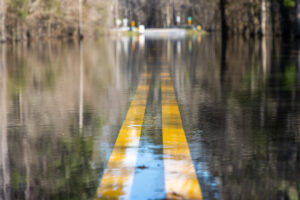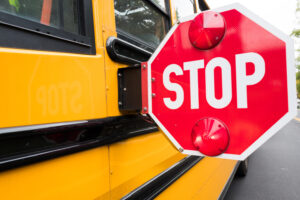Traveling and living in motor homes, campers, and recreational vehicles has grown significantly over the past few years. Each year, fires in them cause deaths, injuries, and millions of dollars in damages. Common locations for fires in motorhomes are the kitchen, engine area, and the electrical system.
With a few simple safety tips, you can help prevent motorhome fires from happening.
- Install smoke alarms and make sure they are working properly.
- Stay in the kitchen while you cook. Keep anything that can catch fire away from the stovetop.
- Only use one heat-producing appliance plugged into a receptacle outlet at a time. To prevent fires from major appliances you should plug them directly into a wall receptacle outlet.
- Refrigerators, furnaces, ovens and stovetops use propane. Check them for leaks. Keep an updated gas leak detector on board.
- Have your propane system inspected to make sure it still works properly.
- Know two ways out. Make sure windows open easily.
- Have everyone practice the home fire escape plan.
- Do not keep camping heaters and lanterns on while sleeping.
- Be sure to check regulations and restrictions on campfires before lighting the match. To help prevent campfires from spreading, they should be at least 25 feet away from anything that can burn.
- Have your vehicle serviced by a qualified mechanic.
- Keep a portable fire extinguisher on board for use on small and containable fires. Only adults who know how to operate it should use it. Make sure everyone else is leaving and that some is calling the fire department.
Motorhome Fact About Fires
When recreational vehicles are used as a home, the most common area for fires to start is in the kitchen or cooking area followed by the engine area, running gear, or wheel area. Check for safety inside and outside of the vehicle.
Carbon Monoxide Awareness
Carbon monoxide (CO) is a gas. You cannot see it, taste it or smell it. Carbon monoxide poisoning can result from leaks in the exhaust and can happen because of improper use of appliances. Sometimes carbon monoxide comes from another vehicle. Make sure you have a working CO alarm.
Read more about motorhome fires by visiting the U.S. Fire Administration website: Data Snapshot: Recreational Vehicle Fires (fema.gov)
